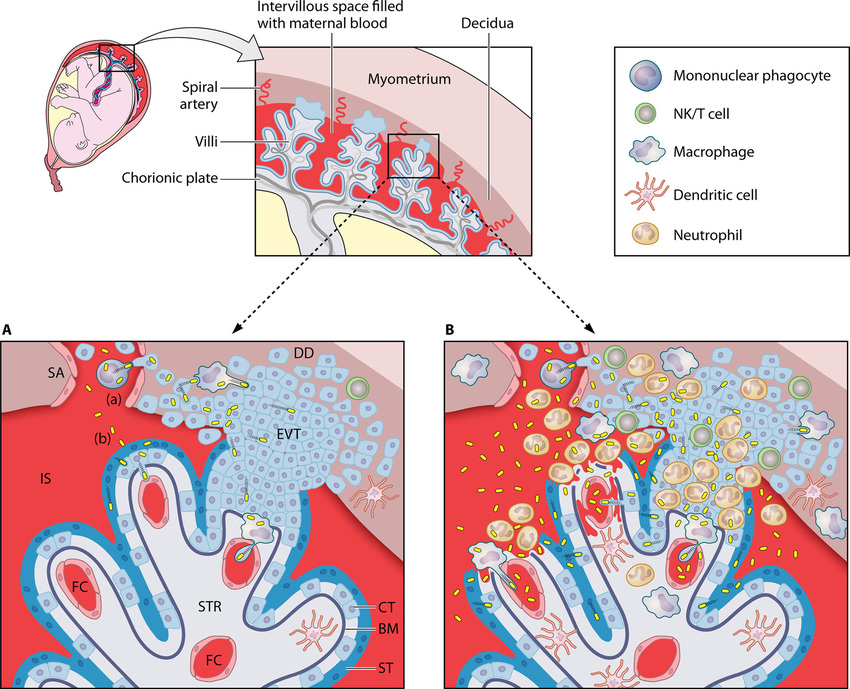Although listeriosis (listeria) has been linked to a number of foods, it is mostly associated with cheese
It can also be found in eggs, milk and some other dairy products such as yoghurt.
One of the most common foods that can carry listeria is milk products, such as cow's, goat's or buffalo's milk. While it is not always clear how listeria might have gotten into the milk, the most likely way is via contaminated equipment used in milk production, or by direct contact. In this instance, the most common symptoms are nausea and abdominal cramping, but other symptoms could also be present, including vomiting and fever.
Another food that might carry listeria is the type of bread. Although you would probably not find listeria in the bread itself, it does remain in the bread pans that the bread will end up on and then become ground up when being eaten. This bread may be contaminated with listeria in the crusts around the pans and the interior of the bread, as well as on the crust that are inside the pan. While these breads are unlikely to be the source of listeria for humans, it is still possible for children or elderly people to contract listeria by eating them.
Foods that can carry listeria include: meats and seafood, eggs, chicken, beef and pork, veal, beef and pork, cheese, milk and yogurt, turkey, turkey, liver and kidney, pork and egg dishes, and mushrooms. It should be noted that many eggs, such as omelets, can also be contaminated with listeria.
It is important to note that if your child is suffering from any of the listeria symptoms listed above, you should immediately call your child's pediatrician and alert him or her to your concerns. The earlier the listeria symptoms are identified, the more likely it is that treatment options will be more effective. If listeria is diagnosed in children, the treatment options available are generally antibiotics.

If there is any doubt that your child is in need of medical attention, he or she should be tested for listeria right away, as this bacterium can cause serious and life-threatening conditions, including coma and even death. Some of the signs of possible listeria exposure include severe abdominal cramps, nausea, vomiting, diarrhea and in severe cases, seizures. You should also report any unusual weight loss to your doctor. Because listeria is a blood-borne pathogen, it can easily be transmitted from one person to another through coughing, sneezing or kissing.
Even if you suspect that your child may have listeria, you should take precautions. For instance, if a pregnant woman tests positive for the infection, she should avoid herself from consuming any food that may have listeria and her unborn baby. Additionally, if you or your family member is sick with other illnesses such as cholera or flu, it is wise to abstain from contact with those individuals until symptoms subside. As well, you should ensure that your pet or cat is healthy by providing adequate water and cleaning supplies for the animal.
Although listeria cannot be prevented, you can limit its spread by using common sense and avoiding foods that may have been contaminated. These simple tips are good practice for those that think they might have a case of listeria, so you can help to keep your family healthy by ensuring that they get all the necessary nutrients that they need.
Many of the foods that are commonly contaminated with listeria include hot dogs, sausages, salami, casseroles, pizza and ice cream. However, some foods are more likely to be contaminated than others, and you should always check labels to make sure that your child has not eaten contaminated food.
In addition to avoiding listeria, you should also limit your child's exposure to others who may have had contact with the bacteria. This includes close contact with other people who are sick with listeria or people who have recently had a negative test result. You should also make sure that you clean and disinfect the area where your child plays such as toys and play rooms and change bedding regularly.
It is important to remember that listeria can also cause serious problems, so if you think that your child may have listeria, he or she should be checked out by his or her doctor or nurse for the proper medical attention that is needed. While there is no known cure for the infection, you can greatly reduce the risk of developing complications with good nutrition, proper hygiene and regular checkups. When listeria is diagnosed in children, the best treatment is prevention, so make sure to keep them healthy and happy by avoiding those foods that may have been contaminated.